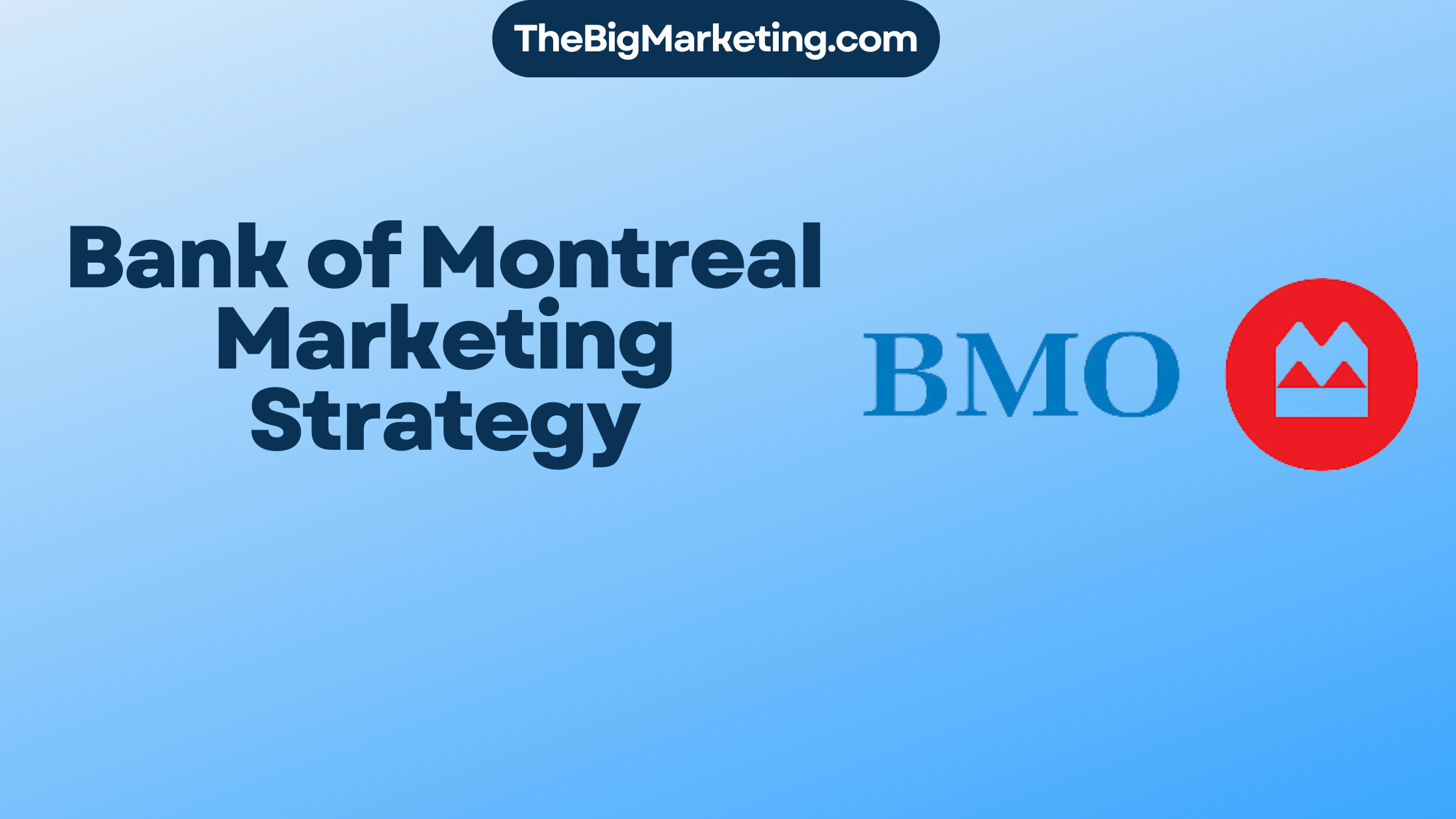Marketing automation has revolutionized the way businesses operate in today’s digital landscape. By leveraging automated tools and software, companies can streamline their marketing processes, optimize customer journeys, and drive business growth. The benefits of marketing automation are vast, ranging from increased efficiency and personalized marketing campaigns to improved sales and marketing alignment. In this article, we will delve into these benefits and explore how marketing automation can transform your business.
Key Takeaways:
- Marketing automation simplifies processes, improves efficiency, and frees up time for larger projects.
- It enables personalized marketing campaigns based on customer data, leading to better customer engagement and conversion rates.
- Marketing automation aligns sales and marketing efforts, resulting in improved communication and coordination between teams.
- Data-driven marketing strategies are made possible by collecting and analyzing customer data, helping businesses make informed decisions.
- Scalable processes and streamlined workflows allow businesses to handle increased volumes of leads and campaigns.
What is Marketing Automation?
Marketing automation is a powerful strategy that revolutionizes the way businesses engage with their customers. It harnesses the capabilities of automated tools and software to streamline marketing processes, optimize the customer journey, and drive business growth. By leveraging marketing automation, organizations can effectively nurture leads, improve customer targeting, and enhance overall marketing effectiveness.
Automated Tools for Efficient Marketing
Marketing automation relies on a variety of automated tools that work seamlessly together to execute targeted marketing strategies. These tools automate repetitive tasks, allowing marketers to focus their time and energy on higher-value projects. From email marketing platforms to customer relationship management (CRM) systems, these automated tools empower businesses to deliver personalized messages at scale and effectively manage customer interactions.
Lead Nurturing for Effective Customer Engagement
Lead nurturing is a critical component of marketing automation. By understanding the customer journey and leveraging customer data, businesses can deliver the right message to the right person at the right time. Marketing automation enables personalized lead nurturing campaigns that guide potential customers through each stage of the sales funnel, ultimately increasing the likelihood of conversion.
Optimizing the Customer Journey
With marketing automation, businesses can optimize the customer journey by delivering relevant content and experiences throughout the entire buying process. By leveraging customer data and behavior tracking, automated tools can tailor marketing messages based on individual preferences and interests. This ensures that customers receive the information they need, when they need it, resulting in a more personalized and engaging customer experience.
Marketing automation is a game-changer for businesses looking to maximize their marketing efforts. By leveraging automated tools, nurturing leads, and optimizing the customer journey, organizations can effectively engage their target audience, drive conversions, and achieve substantial marketing ROI.
Benefits of Drip Email Campaigns
Drip email campaigns are an essential component of effective lead nurturing and customer engagement strategies. By leveraging automated emails and targeted content, businesses can build strong relationships with potential customers and guide them through the buyer’s journey. Let’s explore the key benefits of using drip email campaigns:
1. Nurturing Leads
Drip email campaigns play a crucial role in lead nurturing, allowing businesses to deliver relevant and timely information to potential customers at different stages of the sales funnel. By segmenting your audience and tailoring content to their specific needs, you can provide valuable insights and keep leads engaged. With drip campaigns, you can establish trust, educate your audience, and ultimately increase your chances of conversion.
2. Automation for Efficiency
Automated emails are a time-saving solution that allows you to deliver consistent messaging to your leads without manual effort. Once you’ve set up your drip campaign, emails will be sent automatically based on predetermined triggers or timelines. This automation streamlines your lead nurturing process, freeing up valuable time for other essential marketing tasks.
3. Personalized and Targeted Content
One of the main advantages of drip email campaigns is the ability to deliver personalized and targeted content to your leads. By analyzing customer data, you can create segmented email lists and send tailored messages to each group. Whether it’s offering product recommendations, sharing relevant blog articles, or providing exclusive discounts, targeted content helps to establish a deeper connection with your leads and reinforces their trust in your brand.
4. Guiding Leads through the Buyer’s Journey
A well-designed drip email campaign guides leads through each stage of the buyer’s journey, from awareness to consideration and finally, the decision-making stage. By strategically sequencing your emails, you can provide the right information at the right time, nudging your leads closer to making a purchase. Gradually introducing your products or services, addressing common pain points, and offering valuable resources can be an effective way to move leads down the sales funnel.
5. Tracking and Measurement
With automated drip email campaigns, you have access to valuable tracking and measurement data. Most email marketing platforms provide analytics that allow you to monitor open rates, click-through rates, and conversions. By analyzing these metrics, you can continuously optimize your campaigns, tweak your content, and refine your strategies to achieve better results.
6. Increasing Conversion Rates
The ultimate goal of any marketing campaign is to drive conversions, and drip email campaigns are no exception. By engaging leads with relevant content, capturing their interest, and consistently nurturing the relationship, you can significantly increase your conversion rates. This targeted approach ensures that your leads receive the right information at the right time, increasing their likelihood of making a purchase.
In summary, drip email campaigns offer numerous advantages for lead nurturing and customer engagement. By leveraging automation, personalized content, and targeted messaging, businesses can build relationships, guide leads through the buyer’s journey, and drive conversion. Incorporating drip email campaigns into your marketing strategy can be a game-changer for your business.
Personalized Content for Enhanced Engagement
One of the key benefits of marketing automation is the ability to deliver personalized content to customers, leading to enhanced engagement and increased conversion rates. By segmenting customers based on their demographic and firmographic data, businesses can create targeted marketing campaigns that resonate with their audience’s interests and needs.
Customer segmentation is a fundamental aspect of personalized content, as it allows businesses to divide their customer base into distinct groups with similar characteristics. This segmentation enables marketers to tailor their messaging, offers, and content to each group, ensuring relevancy and increasing the likelihood of capturing the customer’s attention and interest.
Targeted marketing campaigns that deliver personalized content have been shown to significantly improve engagement rates. By addressing the specific pain points or desires of each customer segment, businesses can create more meaningful connections with their audience. Whether it’s through personalized emails, tailored product recommendations, or customized website experiences, personalized content fosters a sense of relevance and value, ultimately leading to increased customer engagement.
Furthermore, the use of personalized content in marketing automation drives higher conversion rates. When customers receive content that caters to their individual needs and preferences, they are more likely to take action, whether it’s making a purchase, subscribing to a service, or signing up for a newsletter. The tailored messaging creates a sense of trust and credibility, empowering customers to take the next step in their buyer’s journey.
Key Benefits of Personalized Content:
- Increased customer engagement
- Higher conversion rates
- Improved customer satisfaction
- Enhanced brand loyalty
Overall, personalized content plays a crucial role in marketing automation by allowing businesses to deliver relevant and tailored experiences to their customers. This level of customization not only drives higher engagement and conversion rates but also creates a positive brand perception and fosters long-term customer loyalty.
With the power of marketing automation, businesses can harness the benefits of personalized content and take their marketing efforts to the next level. By leveraging customer segmentation and targeted marketing strategies, companies can create meaningful connections with their audience, increase conversion rates, and ultimately drive business growth.
Improved Lead Generation and Conversion
Marketing automation plays a crucial role in improving lead generation and conversion for businesses. By leveraging automated processes and capturing valuable customer data, companies can effectively nurture leads through targeted campaigns, resulting in higher quality leads and increased conversion rates. Let’s explore how marketing automation achieves these outcomes.
Automated Processes
Through marketing automation, businesses can automate repetitive processes, ensuring a streamlined lead generation and conversion workflow. By automating tasks such as lead scoring, email follow-ups, and lead nurturing, companies can optimize their resources and focus on nurturing qualified leads, ultimately improving conversion rates.
Data Capture and Analysis
Marketing automation platforms enable businesses to capture and analyze valuable customer data. By tracking and monitoring customer interactions, businesses gain insights into their preferences, behaviors, and needs. This data-driven approach allows for more targeted and personalized marketing campaigns, leading to increased lead generation and higher conversion rates.
Nurturing Leads through Targeted Campaigns
One of the key advantages of marketing automation is the ability to nurture leads through targeted campaigns. By segmenting leads based on their interests, demographics, and behavior, companies can deliver personalized content that resonates with their audience. This targeted approach builds trust, engagement, and increases the likelihood of conversion.
Case Study: Company X
Company X implemented marketing automation to enhance their lead generation and conversion efforts. By automating their lead scoring process, they were able to prioritize high-quality leads and allocate their resources more efficiently. Additionally, they developed targeted email campaigns based on customer behavior, resulting in a 30% increase in lead conversion rates within six months.
| Key Benefits | Company X Results |
|---|---|
| Improved lead generation | 20% increase in lead volume |
| Higher quality leads | Increased lead conversion rates by 30% |
| Streamlined lead nurturing | Reduced time spent on manual follow-ups by 40% |
| Enhanced customer segmentation | Improved email open rates by 25% |
By adopting marketing automation, businesses like Company X can achieve significant improvements in lead generation and conversion. By automating processes, capturing and analyzing data, and nurturing leads through targeted campaigns, businesses can generate more qualified leads and increase their conversion rates.
Enhanced ROI and Cost-Effectiveness
Marketing automation is a game-changer for businesses, offering a multitude of benefits that directly impact the bottom line. One of the key advantages of implementing marketing automation is the enhanced return on investment (ROI). By leveraging automation tools and optimizing marketing processes, companies can significantly increase efficiency, improve lead quality, and reduce marketing costs.
Marketing automation streamlines repetitive tasks, freeing up valuable time for marketing teams to focus on larger projects and strategic initiatives. By automating manual processes, such as lead nurturing and customer segmentation, teams can eliminate human error and ensure consistent and targeted communication with prospects and customers. This ultimately leads to improved efficiency and resource allocation, maximizing the effectiveness of marketing efforts. Increased efficiency not only saves time but also reduces costs, making marketing automation a cost-effective solution for businesses of all sizes.
Furthermore, marketing automation helps businesses capture and leverage valuable customer data, leading to better decision-making and improved lead quality. With automated data collection and analysis tools, marketers can gain actionable insights into customer behavior, preferences, and purchasing patterns. These insights allow for more targeted and personalized marketing campaigns, resulting in higher conversion rates and revenue growth.
| Benefits of Marketing Automation for Enhanced ROI | How It Enhances ROI |
|---|---|
| Increased Efficiency | Automated processes save time and resources, leading to higher productivity and cost savings. |
| Improved Lead Quality | Data-driven insights enable targeted marketing, resulting in better-qualified leads and higher conversion rates. |
| Reduced Marketing Costs | Automation eliminates the need for manual tasks, reducing labor costs and streamlining marketing budgets. |
| Higher Conversion Rates | Personalized marketing campaigns based on customer data result in a higher likelihood of conversion. |
| Revenue Growth | By optimizing marketing efforts, businesses can achieve increased revenue and sustainable growth. |
Implementing a marketing automation solution is a strategic investment that delivers long-term benefits and a significant return on investment. By leveraging automation tools and embracing data-driven marketing strategies, businesses can achieve higher conversion rates, improved lead quality, and substantial revenue growth. Furthermore, the cost-effectiveness of automation makes it an attractive solution for businesses looking to maximize their marketing efforts without breaking the bank.
Enhancing ROI with Marketing Automation: A Real-World Example
To understand the true impact of marketing automation on ROI, let’s examine a real-world example:
- A marketing team leverages marketing automation to implement targeted drip email campaigns based on customer behavior and preferences.
- By delivering personalized and relevant content to prospects, the team achieves a 30% increase in lead conversion rates.
- As a result, the company generates $500,000 in additional revenue over the course of a year.
- In addition to the revenue growth, the marketing team saves approximately 20 hours per week by automating manual processes, allowing them to focus on high-impact projects.
- The cost of implementing the marketing automation platform is $50,000 per year.
Aligning Sales and Marketing Efforts
When it comes to driving business growth, effective collaboration between the sales and marketing teams is crucial. However, without proper alignment and communication, these departments can often work in silos, resulting in missed opportunities and inefficient processes. This is where sales and marketing alignment comes into play, and marketing automation plays a vital role in facilitating this coordination and streamlining efforts.
By implementing a centralized marketing automation platform, businesses can ensure that both sales and marketing teams have access to the same data and are on the same page regarding goals, targets, and strategies. This coordinated approach eliminates the gaps and disconnects that often occur when using disparate systems and spreadsheets.
Improved communication between sales and marketing teams is another significant benefit of marketing automation. Through shared access to real-time analytics and reporting, both teams can gain valuable insights into customer behavior, campaign performance, and lead quality. This data-driven approach fosters open communication, allowing teams to make more informed decisions and align their efforts to achieve common objectives.
Benefits of Sales and Marketing Alignment:
- Enhanced Lead Management: With a unified platform, sales and marketing can efficiently manage leads, ensuring that qualified prospects receive the appropriate follow-up and nurturing. This leads to improved lead quality and higher conversion rates.
- Streamlined Workflows: Marketing automation helps establish standardized processes and workflows, reducing manual tasks and freeing up time for both teams to focus on strategic initiatives.
- Seamless Lead Handoff: By aligning sales and marketing efforts, businesses can create a seamless handoff process from marketing-qualified leads (MQLs) to sales-accepted leads (SALs), ensuring that no leads fall through the cracks.
- Increased Revenue: When sales and marketing work together towards common goals, it leads to increased revenue. By leveraging the power of marketing automation, businesses can enjoy improved conversion rates, shorter sales cycles, and ultimately, higher revenue.
Overall, aligning sales and marketing efforts through the implementation of marketing automation is a strategic move that drives efficiency, improves communication, and maximizes revenue potential. By nurturing a collaborative environment and leveraging data-driven insights, businesses can enhance their competitive edge and achieve long-term success.
| Benefits of Sales and Marketing Alignment | Key Takeaways |
|---|---|
| Enhanced Lead Management | Improved lead quality and conversion rates |
| Streamlined Workflows | Standardized processes and increased productivity |
| Seamless Lead Handoff | No leads falling through the cracks |
| Increased Revenue | Improved conversion rates and higher revenue |
Data-Driven Marketing Strategies
Marketing automation empowers businesses to implement data-driven marketing strategies that leverage valuable customer insights and analytics. By collecting and analyzing customer data, businesses can gain a deeper understanding of customer behavior, preferences, and engagement, which enables them to develop more targeted and effective marketing campaigns.
Through data-driven marketing, businesses can make informed decisions based on concrete evidence and analysis. This approach ensures that marketing efforts are aligned with customer needs and preferences, resulting in better results and higher ROI.
By harnessing the power of data-driven marketing, businesses can:
- Create personalized campaigns based on customer insights
- Optimize marketing messages and content for maximum impact
- Identify opportunities for growth and improvement through data analysis
- Segment customers for targeted marketing campaigns
- Measure the effectiveness of marketing initiatives with analytics
Customer insights derived from data-driven marketing strategies provide a competitive advantage by enabling businesses to make data-backed decisions that drive business growth and customer satisfaction.
Example of Data-Driven Marketing in Action:
Let’s consider a scenario where an e-commerce business wants to increase its conversion rate and sales. Through data analysis, the company discovers that customers who have previously purchased a specific product tend to have a higher likelihood of purchasing related accessories.
Based on this insight, the marketing team creates a targeted campaign that showcases these accessories to customers who have purchased the main product. By utilizing automation tools, the company can easily segment its customer base and deliver personalized emails with tailored product recommendations to each segment.
As a result, the company experiences a significant increase in accessory sales and a higher overall conversion rate. This success is directly attributed to their data-driven marketing strategy and the insights gained through customer data analysis.
Data-Driven Marketing Strategy Example:
| Benefit | Description |
|---|---|
| Improved Targeting | Target specific customer segments based on their preferences and behaviors. |
| Higher Personalization | Create customized marketing campaigns that resonate with individual customers. |
| Enhanced Customer Experience | Deliver relevant content and offers to enhance customer satisfaction. |
| Better ROI | Allocate resources more effectively based on data insights, resulting in improved return on investment. |
By implementing data-driven marketing strategies, businesses can elevate their marketing efforts to new heights, resulting in increased customer engagement, improved conversion rates, and ultimately, greater business success.
Scalability and Streamlined Processes
When it comes to marketing automation, one of the key benefits is the ability to scale processes as your business grows. With an automation platform in place, you can efficiently manage your marketing activities, streamline workflows, and automate repetitive tasks. This scalability empowers your team to focus on bigger projects while the automation platform takes care of the day-to-day tasks.
By implementing streamlined workflows, you can optimize the efficiency of your marketing operations. With a centralized automation platform, you can easily manage and track your campaigns, ensuring that nothing falls through the cracks. The platform provides a seamless flow of information, eliminating bottlenecks and driving more effective collaboration between team members.
Streamlining your processes with marketing automation not only enhances productivity but also improves your ability to handle increased volumes of leads and campaigns. As your business expands, the automation platform allows you to efficiently manage and nurture a larger pool of leads, ensuring that no opportunities slip away.
Ultimately, scalable processes and streamlined workflows provided by marketing automation enable you to achieve maximum efficiency, productivity, and growth. By leveraging automation technology, you can optimize your marketing efforts and stay ahead in today’s competitive landscape.
Strategic Lead Nurturing
Effective lead nurturing is a crucial aspect of any marketing strategy. With the help of marketing automation, businesses can implement strategic lead nurturing techniques that optimize their conversion rates and drive revenue growth.
Automated campaigns play a key role in strategic lead nurturing. By creating automated workflows that deliver targeted content and engage prospects at the right touchpoints, businesses can build trust and guide leads through the customer journey. These campaigns can be tailored based on customer behavior and preferences, ensuring a personalized experience that resonates with each individual.
Personalized touchpoints are another essential element of strategic lead nurturing. Through marketing automation, businesses can dynamically deliver content that meets the specific needs and interests of their target audience. By segmenting customers based on demographic and firmographic data, businesses can craft personalized messages that engage and captivate their prospects.
Ultimately, strategic lead nurturing facilitates a deeper connection with leads, increasing the likelihood of conversion. By leveraging automated campaigns and personalized touchpoints, businesses can build meaningful relationships, earn customer trust, and drive revenue growth.
| Benefits of Strategic Lead Nurturing | Examples |
|---|---|
| Increased conversion rates | Customized email drip campaigns that deliver relevant content based on lead behavior |
| Improved customer engagement | Personalized landing pages and web experiences that address lead preferences |
| Higher customer retention | Automated follow-up emails that nurture existing customers and drive loyalty |
| Enhanced sales and marketing alignment | Automated lead handoffs from marketing to sales based on lead scoring and engagement |
Conclusion
Marketing automation is a powerful tool that brings numerous benefits to businesses. By harnessing the power of automation, companies can streamline their marketing efforts and achieve greater success in today’s digital landscape.
One of the key advantages of marketing automation is the increased efficiency it offers. By automating repetitive tasks and processes, teams can focus on larger projects, resulting in higher productivity and better time management.
Furthermore, marketing automation improves lead generation and conversion. By nurturing leads through targeted campaigns and delivering personalized content, businesses can attract and convert more qualified leads, ultimately boosting revenue and profits.
In addition to efficiency and lead generation, marketing automation also enables better alignment between sales and marketing teams. By providing a centralized platform for collaboration and communication, it ensures that both teams are on the same page and working towards shared goals.
In conclusion, the benefits of marketing automation are wide-ranging. From increased efficiency and improved lead generation to enhanced ROI and better sales and marketing alignment, businesses can harness the power of automation to achieve their marketing objectives and drive success.






